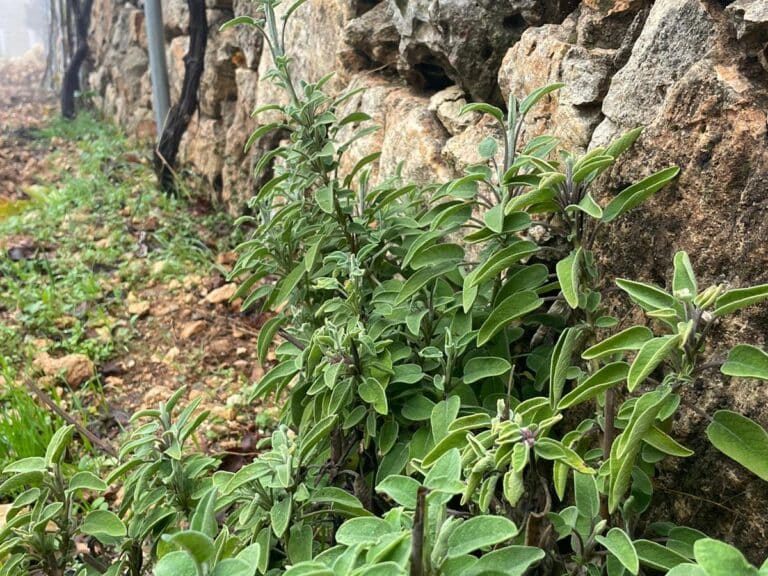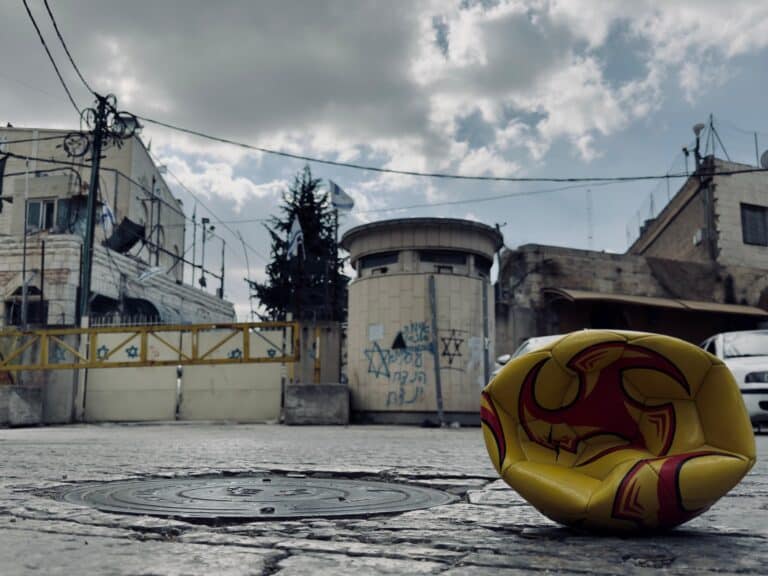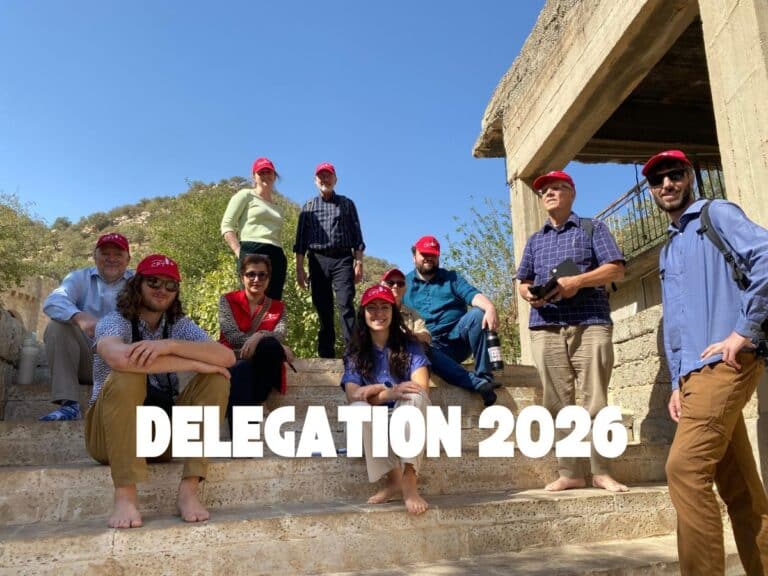By Cliff Kindy, Ken Jones, Melody Shank
As our 3-person CPT team made our way west from Duluth, Minnesota on 28 June, we began to see signs of pipeline construction: construction site entrances, a pump station, excavated roads, and easements. Soon we began to see blue yard signs with the slogans, “Minnesotans (depicted as the outline of the state) 4 Line 3;” “Go Line 3.” We saw only a few handmade opposition signs. We learned later that Enbridge Energy, the Canadian company constructing the pipeline, had rallied local support by financing the campaign and signs. We drove to the Stop Line 3 Welcome Center just north of Palisade, MN. There was no missing it; No Line 3 signs lined the road along the entrance to the camp.
The camp is tucked into the beautiful North Woods. On one side of the road is the central gathering space where meals are served, projects are hatched, and community is built between core team members and long- and short-term visitors who gather around morning and evening campfires. Long-term camp members and Indigenous leaders make their home here. On the other side of the road is the River Camp, situated on the Mississippi River, where visitors can pitch their tents.
We knew before arriving that Enbridge is building a large new pipeline through Anishinaabe territory in direct violation of treaty rights. This pipeline was much larger than existing pipelines and would transport an enormous volume of tar sand oil from Alberta to Lake Superior for export to foreign markets. We were joining an Indigenous-led struggle to prevent this from happening.
We quickly learned the extent of imminent environmental danger brought by the pipeline, above and beyond fueling the climate emergency. Enbridge plans to drill under twenty-two rivers and cross many miles of wetlands; the predictable leaks will threaten hunting, gathering, and wild rice cultivation upon which tribes rely for subsistence. Already, the company has desecrated sacred sites, and the man camps have threatened Indigenous women. Resistance is being met with a systematic corporate counter-insurgency, where Enbridge provides funds to local police to protect its interests, offers buy-outs to Indigenous Nations for waiving their rights, and wages a disinformation campaign to win the approval of Minnesota citizens.

We pitched our tents close to the prayer lodge built on public land directly in the path of the oncoming pipeline. A treaty signed in 1855 guaranteed such a use of public lands by the Anishinaabe, and attorneys are working to ensure this guarantee is honoured. A stop-work order from the Army Corps Engineers was already in place when we arrived while a court case was pending. Despite this, Enbridge was forging ahead with digging and drilling around the clock. After many confrontations with police and workers intent on removing the prayer lodge, the camp instituted a 24-hour watch to protect and hold the space. The first task asked of our team was to help with this watch.
But shortly after we arrived, we learned that Enbridge’s sub-contractor had completed pulling the pipe under the road, under the Mississippi River, and under the prayer lodge. Camp leaders had thought the drilling noise was only the pilot drill that provides the clearance for workers to pull the 36” pipe through, so they were deflated to learned that the pipe was already set under the river. They had thought they still had time. Enbridge was working much faster than even permit documents outlined.
In our weeks at the camp, we joined in the daily tasks of keeping the community life of the encampment running smoothly. Not a simple task, given the frequent comings-and-goings of people on a daily basis. We helped with dishes and cooking, kept wood fires burning, kept the sacred fire at the prayer lodge burning, led a de-escalation training session for the camp, and maintained a security watch at the front gate. We were part of regular meetings and conversations. We even helped the community prepare for and pull off a wedding!
Our engagement in community life helped to forge relationships with the core team in the camp and fostered mutual trust, leading to our inclusion in plans for a direct action against the pipeline. One CPTer chose to risk arrest as he joined Indigenous and local women in canoes in the pipeline path across the Willow River. The two other CPTers served as legal observers for the activists constructing two road blockades that delayed construction workers from reaching the worksite. Our CPT accompaniment had taken on a new face.

The canoe action turned out to be a critical event in the struggle here. The pilot drilling under the Willow River had caused a “frac-out”: the release of fluids from the horizontal directional drilling (HDD) process that rise to the surface. The sludge that river protectors saw was yellow, thick and warm. Observers also suspected that the drilling had punctured an aquifer. HDD fluids can seep into open aquifers, suffocate plants and animals, and cause water contamination. The Water Protectors couldn’t help but wonder how long the spill had been present in the water; what if they hadn’t come to the river on that day? They gathered water samples from the yellow sludge and continued to do so for several days. Amazingly, work stopped for the next four days and became one of the successes of the nonviolent campaign. The blockades and actions on that day resulted in six arrests and a three-day jail stay.
The ease with which the actions occurred led to anger and frustration of the Aitkin County Sheriff’s Department. They threatened to remove all camp vehicles from the ditch area along the Great River Road between the Welcome Center and prayer lodge and ended up impounding three vehicles that were parked along public access roads near the actions.
Over the next three days, over twenty people from the camp peacefully occupied the space in front of the county courthouse in a public show of solidarity for our six friends held in jail.
As the time for our departure neared, we met with the core team, who expressed an interest in having long-term CPT presence to help facilitate camp security and community living, foster a spirit of nonviolence, and offer guidance in de-escalation strategies.
The work will not end even if Line 3 is completed. We are part of a larger, ongoing struggle for Indigenous rights, the protection of Mother Earth, and the prevention of catastrophic climate change. It is being waged in the face of a massive corporate counterinsurgency campaign that uses the police, state government, and manipulated public opinion to repress dissent and target the Indigenous population.
CPT is honoured to have had a presence at Line 3, learning and walking with Water Protectors. This is the second Team CPT has sent since the beginning of June. CPT is hoping to send more CPTers to be in solidarity with Water Protectors at Line 3. Follow us on social media and stay tuned!






